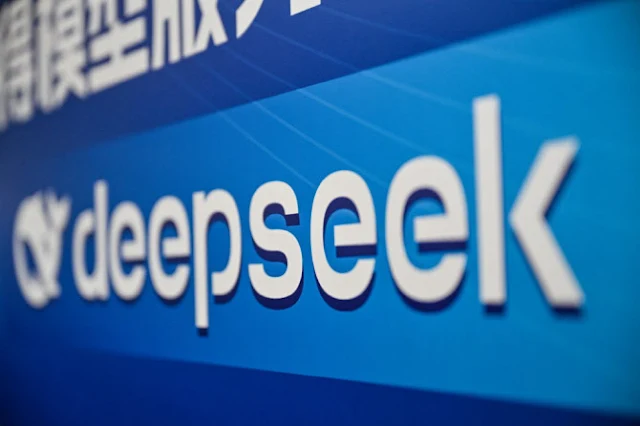China's Think Tank: DeepSeek's Rapid Growth Hinders Policy-Making
 |
| Why Advanced AI Technology Complicates Economic Strategies |
China's leading think tank, the Chinese Academy of Social Sciences' Institute of Finance, recently highlighted in its "China Macro-Financial Analysis" report for Q4 2024 that the nation's policymakers are grappling with unprecedented challenges in crafting macroeconomic strategies for 2025. Among the hurdles are fluctuating foreign exchange markets, rising financial market instability, and the rapid advancement of artificial intelligence technologies like DeepSeek, a cutting-edge AI model. The report suggests that while DeepSeek's breakthroughs bolster market confidence, its swift evolution introduces fresh uncertainties, making flexible policy-making essential in this complex landscape. With the annual "Two Sessions" (National People's Congress and Chinese People's Political Consultative Conference) approaching in early March, the spotlight is on what measures Beijing will unveil to navigate these multifaceted issues.
The Institute pinpointed three core challenges threatening China's economic stability in the coming year: intensified capital outflow pressures in the foreign exchange market, growing difficulties in policy formulation, and heightened financial market volatility. The foreign exchange market faces strain due to a persistent strong U.S. dollar, fueled by the Federal Reserve's sustained 4% interest rate policy and the incoming Trump administration's "America First" agenda. This global capital shift toward the U.S. has amplified pressure on China's forex market, with the yuan facing depreciation risks. The report notes that the inverted interest rate gap between China and the U.S. has dampened foreign direct investment appetite, while the accelerating globalization of Chinese firms adds layers of complexity to capital management, testing the yuan's stability. In response, the People's Bank of China has issued offshore central bank bills to stabilize the forex market in the short term, though the think tank emphasizes that long-term yuan stability hinges on advancing its internationalization and fostering high-quality economic growth.
Beyond forex woes, crafting macroeconomic policies has become trickier amid global uncertainties and diverging strategies among major economic players. Monetary policy struggles to balance exchange rate stability against the U.S.'s high-interest-rate stance, while fiscal policy must juggle growth stabilization, structural reforms, and debt risk management. Industrial policies demand precision amid global tech rivalries, supply chain reshuffling, and intensified competition, while financial openness requires cautious navigation under capital flow pressures. Financial markets, meanwhile, brace for greater volatility, exacerbated by uncertainties tied to the Trump administration’s unpredictable approach. Into this already intricate mix steps DeepSeek, an AI model that has captured global attention for its cost-effective, high-performance capabilities, further complicating the policy-making equation.
DeepSeek, launched in 2023 by a Hangzhou-based AI firm backed by hedge fund High-Flyer, has emerged as a standout in the AI race with its DeepSeek-R1 model, rivaling the likes of OpenAI’s GPT-4. Developed at a fraction of the cost (around $6 million compared to GPT-4’s estimated $100 million), this model’s open-source release under an MIT license in January 2025 catapulted it to prominence, even outranking ChatGPT on Apple’s App Store. The think tank acknowledges that DeepSeek’s technological leap enhances China’s standing in global AI competition and boosts market optimism. However, its rapid pace of development introduces unpredictable variables that policymakers must contend with. The AI’s potential to disrupt industries, reshape economic dynamics, and outpace regulatory frameworks poses a unique challenge to strategic planning, amplifying the need for adaptive macroeconomic policies in China.
The economic implications of DeepSeek’s rise are profound. Its ability to deliver high-performance AI at low cost could transform manufacturing, finance, and service sectors, driving innovation but also displacing traditional models. This unpredictability complicates economic forecasting and policy initiatives like setting growth targets or incentivizing investment, especially as China prepares to unveil its 2025 economic roadmap at the Two Sessions. On the regulatory front, DeepSeek’s open-source nature raises concerns about privacy breaches, algorithmic bias, and potential misuse, as its accessibility outstrips the development of oversight mechanisms. Policymakers face the daunting task of crafting rules that keep pace with such fast-evolving technology, a challenge compounded by the need to align monetary, fiscal, and industrial strategies with broader economic goals.
Social and ethical dimensions further muddy the waters. The widespread adoption of advanced AI like DeepSeek could lead to job losses, exacerbate inequality, and erode public trust if not managed carefully, necessitating proactive policy responses to mitigate backlash. Globally, DeepSeek’s success intensifies U.S.-China tech tensions, influencing trade policies, foreign investment flows, and capital management strategies. With the U.S.-China interest rate disparity already curbing FDI and pressuring the yuan, the AI race adds another layer of geopolitical complexity. The think tank warns that financial markets, already jittery from Trump-era uncertainties, could see amplified swings as AI-driven innovations ripple through global economies.
To tackle these intertwined challenges, the Institute advocates for a nimble policy approach. Short-term forex stabilization measures, like offshore bond issuances, must pair with broader efforts to internationalize the yuan and bolster economic fundamentals. Simultaneously, policymakers must assess DeepSeek’s societal and economic impacts, accelerating regulatory frameworks to harness its benefits while curbing risks. As China gears up for its March 4 kickoff of the Two Sessions, where the government will outline its economic growth targets and key policies, the ability to adapt to DeepSeek’s rapid advancements alongside forex and market volatility will be critical. The think tank’s analysis underscores that in this era of technological and economic flux, agility in macroeconomic policy-making in China is not just an option but a necessity, ensuring the nation can leverage AI breakthroughs like DeepSeek without being blindsided by their far-reaching consequences.



댓글
댓글 쓰기